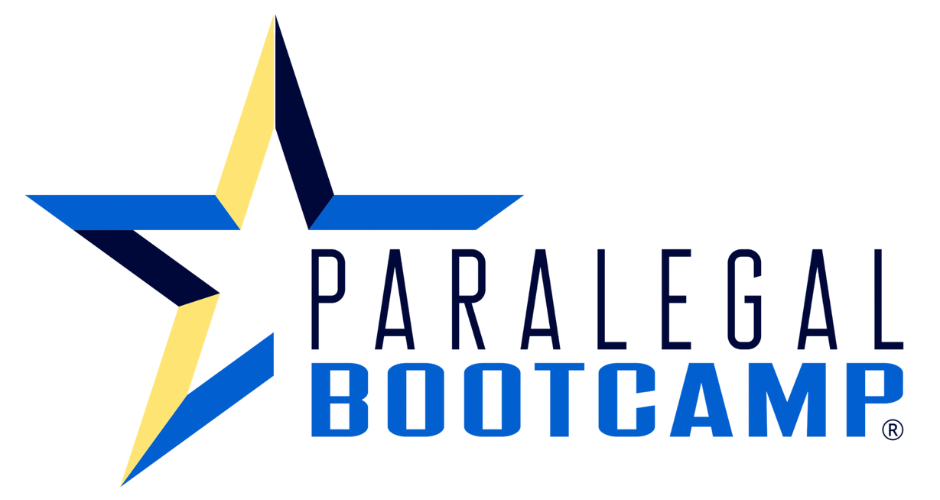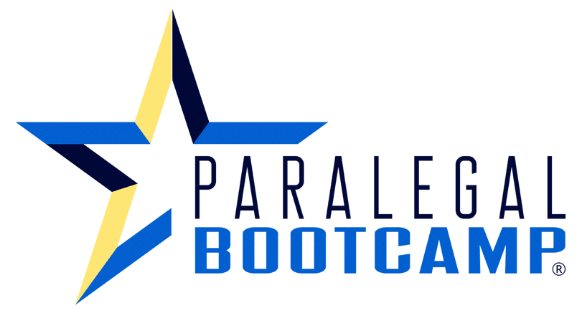If you want to transfer to the litigation department at your firm, or you want to find a new position as a litigation paralegal even though you’ve been working in another practice area, how do you do that? Can you do that? Yes.
Last week, I received an email from a paralegal who was trying to decide if she should join the Litigation Paralegal Boot Camp, which is now open. She started her paralegal career three years ago as a commercial real estate paralegal, and she does not enjoy what she’s doing. She thinks she wants to transfer to her firm’s litigation department and wants to know if our Litigation Boot Camp would help her do that. The answer was an easy yes. It most definitely will help her do that.
First, good for her to understand that just because she doesn’t like the work she’s doing in a particular practice area, doesn’t mean she should just give up on being a paralegal altogether. I see that all too often.
Every practice area is unique and has its own ups and downs. In fact, even with the specialty areas of one practice area, they have their unique pros and cons. For example, within litigation – you might be a paralegal working in construction litigation, and what you would be doing would be completely different than if you are a paralegal working in personal injury litigation.
So instead of just jumping head first into the deep end of the pool, I want to give you some steps to take before just saying, “I want to be a litigation paralegal.”
1. Make a List
Actually, it’s two lists, but on one piece of paper. On the left side, write down all of the things that you don’t like about what you are doing now in your current position.
Then on the right side of the paper (or column if you’re making a list on the computer), write down all of the things you like about what you are doing now in your current position. Put the list aside for a few hours or a few days, and go back through it and read each of the pros and cons of your current position. Circle the top 3-5 on each side. What are the things you like and dislike the most?
2. Do a Self-Assessment
Then ask yourself, is there any kind of pattern to these things? For example, if 3 of the things you dislike are the long hours, last-minute emergencies, and your high-stress level…then ask yourself will this change in this new practice area? I can tell you for certain, that if you want to transfer over to your litigation department, you will not see a reduction in any of those three things! However, if you are a litigation paralegal who circled those three things on the left side of your list, moving into estate planning or immigration might help you reduce them.

3. Map Out the Pros and Cons
Look at the entire list again, the one on the left – the cons, what you don’t like about your current position – are there things on there that could be improved or eliminated from the list if you were to make some changes? For example, let’s say it’s the long hours you dislike the most. Are you working those long hours because you’re getting distracted during the day and then have to work late to meet your deadlines?
If you are stressed because of long hours, follow these pro tips for time management. Or are you working long hours because you come in at 8 and your attorney comes in at 10 and doesn’t start cranking out the to-dos until after 1? Is there something you could do to reduce those long hours?
Here’s another example: Let’s say the real estate paralegal feels like it’s boring work that she’s doing and she thinks that litigation will be more exciting. If that’s on your list, ask yourself if the work is boring because you’re not asking for or receiving the interesting work that might be available to you. If you’re a few years into your career, maybe your attorney is still holding back on giving you some of the higher-level work because he or she doesn’t realize you’ve mastered the other stuff and are ready to step it up a notch. You have to ask. You have to communicate that to the attorney.
Now for every one of those questions you’re asking yourself, look to the right side of the list and see if there’s a corresponding pro or positive side.
It won’t be matching, but it might offset the left side somewhat. For example, let’s say on the right side you listed “enjoy working with these team members.” And then ask yourself, what if the situation was flipped. What if I was doing work that was exciting, but I was working on a team that I didn’t enjoy working with.

4. Review the Job Description
Read your firm’s job description for a litigation paralegal AND go read a few other litigation paralegal job descriptions that you can find online.
Make yourself a bullet point list of all of the required skills and preferred skills that they are looking for in a litigation paralegal (or whatever paralegal position you are wanting to transfer to or move into). From that list, put a checkmark next to the ones that you have.
Now keep in mind with this one, you might not have the exact skill that’s listed in the job description, but you might have a skill that is transferrable to that position. For example, the job description may have the skill of legal research and investigation skills. You haven’t done much legal research in your commercial paralegal position, but you have done some big due diligence projects on those pending transactions. With a little bit of training, that skill would be transferrable.
5. Develop Your Skills
Next, you’ll want to go get the skills that are on that bullet point list that don’t have a checkmark on them. How? Get online and do some research on which classes you can take to fill in that gap. And make sure it’s something that you can prove you did with a certificate, not just by watching a YouTube video. Make it something that your employer could verify if they wanted to.
Now I’m not saying it has to be a CLE certificate. We’re not talking about CLE credits. Just a certificate of completion. You can’t go ask to switch practice areas and say to them, I watched a bunch of YouTube videos that showed me how to draft discovery, and get ready for depositions and trials.
Even if you can’t get all of those in one course, like our Litigation Boot Camp, then maybe you find a bunch of short courses on each topic and slowly add more checkmarks to that list throughout the next year. Keep in mind, that enrollment is now open for our Litigation Boot Camp. You can learn more about the course at paralegal-bootcamp.com/litigation if you are in litigation or want to transition to the litigation practice area. Or if you’re a legal assistant who wants to eventually take on a paralegal role in your firm.

6. Talk to Others Working in that Practice Area
Talk to as many paralegals in that new practice area as you can so that you can get a better idea of what day-to-day life might look like for them.
Just like you made a list of the pros and cons of your current practice area, ask them what they like most and what they like least about that practice area.
Depending on the practice area, and WHY you want to move into that practice area, your conversation might even go one step further. For example, if you’re like that real estate paralegal wanting to transition into a litigation paralegal position, and one of your motivations is that you want to go to trial. Ask those litigation paralegals how often they go to trial.
Just like everything else that’s specific to certain practice areas, something like that can also be specific to different practice area specialties within litigation.
These 6 steps will ensure that you are thoroughly exploring the practice area you are considering transitioning to and that you are well-prepared for that transition. If you think that litigation is right for you, we hope you’ll join us in the Litigation Paralegal Boot Camp.
Meet the Author

Ann Pearson is the Founder of the Paralegal Boot Camp, and host of the Paralegals on Fire! Podcast Show, and passionate about promoting the paralegal profession.
Ann spent 20 years working as a paralegal manager and a litigation paralegal before opening the Paralegal Boot Camp in 2010.
Ann’s training programs focus on adding immediate value to a paralegal’s career and bridging the gap between what a paralegal learns in school and what they actually do on the job.
Visit the About Us Page to learn more about why Ann started the Paralegal Boot Camp.
Litigation Paralegal Boot Camp
Are you tired of being the Panic Mode Paralegal who spends your days playing whack-a-mole with last-minute rush projects?
This is the only program of its kind that provides litigation paralegals with all of the tools to master litigation cases from the complaint through the trial, and everything in between.
You will be the Confident Case Strategist faster than you ever imagined possible.
NEXT ENROLLMENT OPENS ON APRIL 23, 2024!



























